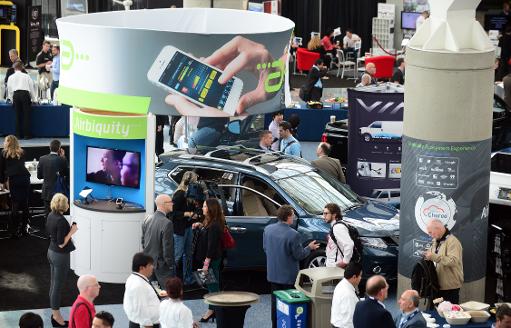As a child of the technological
age, I’ve seen our world grow closer to many of the Sci-Fi apocalypse novels
I’ve read in my classes. We’ve grown so attached to the internet that most of our
society is wholly dependent on it. Many psychologists argue that it has
desensitized us and dulled our sense of empathy. I’ve seen this in many around
me, and it frightens me. The last article I wrote for Ace of Geeks was
about the book Feed, a society where our equivalent, Google Glass, is
implanted into your brain, causing everyone with the microchip to be constantly
connected to the feed of information and advertisements that the corporations
send them.
The major element in the book is the class
discrepancy—anyone without money doesn’t have the feed, and is therefore unable
to obtain jobs that would earn them the money to afford the microchip. This is
something that has become a clear issue in modern society. I’ll dive into some
examples from my personal life that show this.
I am from southern California, in an area where the
middle class is almost exclusively represented in the form of lower-middle
class. The rest of the people are from the upper class.
The friends I made were largely stuck in the former, or in the lower class,
where the newer technology was only available to them after it became older
tech, when they could afford it. Some of my friends took on jobs to help
support their families. Some of my friends took on jobs to pay for gas, and
eventually save enough money for new tech. I didn’t earn enough money for an
Xbox until a week before the 360 came out, and I wasn’t aware of the 360 being
released. The friends of mine who did have an Xbox were those who could afford
to upgrade immediately, and so my Xbox had become useless for the social gaming
I had intended to use it for. It now collects dust in a basket at my mom’s
house.
I now live in San Francisco, and have made many friends
who grew up in Silicon Valley. All, save for a few, grew up getting the new
technology almost immediately, handed to them on a silver platter. Getting a
job for them was also easy, as they were able to get entry-level positions
before they graduated high school, allowing them to continue to get jobs and
earn more experience for their résumés. They now have very little
resistance in getting a new job at their leisure, to earn enough money to
preorder the new consoles they want. All but three of them had the Xbox One
delivered to their doorstep on release date, and one of the three was out of country
on a study abroad program, while yet another preordered it at a store for
pick-up. These friends of mine also had smartphones long before I met them,
while I did not get one until 2012. They all also have computers of good
quality at minimum, with a few having high-end computers they built with brand
new parts.
In my area of study, broadcast media, computers that have
editing capabilities are a must-have, second only to recording gear. Luckily,
my department has all of this; equipment for loan, computers on campus for use
(with a time limit). My significant other’s department, cinema, does not
have these luxuries. One of the mandatory courses requires that you buy 35mm
film, and pay for it to be processed, coming out to a total of roughly $250 per
roll of film used and processed. (This is why I shoot digital exclusively - Ed) The groups in this course have 4 students
each, but that’s still quite a price per student—roughly $62 per project, per
person. So far there have been 3 projects in that class, with a final one
coming up. Had I chosen to be a cinema major, I would not have been able to
afford it, and would have had to drop out. I’ve noticed that almost all of the
students in that major who make it to graduation either come from money, or
qualify for a great deal of grants and scholarships. This is a public college—a
state school, not a private college.
What I want you all to take away from this is that you
should be aware of where you stand in technological privilege. If you’re
amongst those who do not worry about whether your tech can stand up to the
tasks required of you, you should be grateful. If you’re not one of the
privileged, if you’re one of those who have to use the public tech available to
you, then keep working hard, because it is still possible in this society to
find a job that can get you better tech. I’m lucky enough to be in the
middle—my family can afford to get me new tech if I ask for it as a combined
gift from all of them on the holidays. Often, I’ve had to ask for combination
birthday/Christmas gifts, with the entirety of one side of my family pitching
in. But, I digress.
Be aware of what’s happening on both sides of the
financial gap of society, as well as what’s going on in the middle. Take action
to help close the gap, or at least bring it all to the same level. Technology
is required in almost every field of work in our society, and those with the
most recent tech are those who move forward and stay afloat.
Check your privilege.



No comments:
Post a Comment